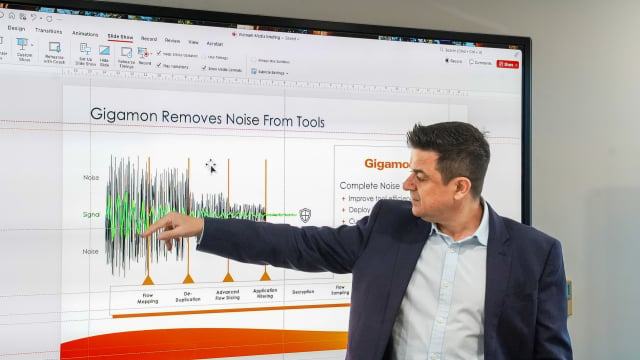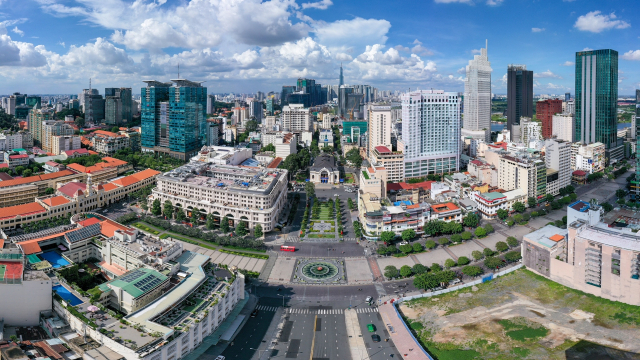Leader Talk
Tokyu teams up with Danh Khoi to expand portfolio in Vietnam
The joint venture with Danh Khoi marks the beginning of Tokyu Corporation's strategy of segment diversification and market expansion in Vietnam.
Japan’s Tokyu Corporation (Tokyu) has recently decided to enter into a joint venture with Danh Khoi Group and introduced the first project, The Meraki, in the coastal province of Ba Ria - Vung Tau. Tokyu announced this joint venture with a Vietnamese company after 10 years in partnership with Becamex IDC to establish Becamex Tokyu in Binh Duong.
Tokyu's new move after a decade of presence in the Vietnamese market has caught the eye of domestic and foreign real estate investors. Why did Tokyu choose Danh Khoi as a partner and what is the future development strategy of the joint venture? TheLEADER.vn had an interview with Oh Dong Kun, country head of Tokyu in Vietnam.

As a 100-year economic behemoth of Japan with a lot of experience in developing and managing a business portfolio spanning from real estate, transportation services and hotels to resorts, business support services and many others, there are surely many partnership opportunities for Tokyu. Why did Tokyu choose to make a joint venture with Danh Khoi?
Oh Dong Kun: In sourcing potential partners in Vietnam, Tokyu had worked with many different real estate businesses including both large and small enterprises. However, when working with Danh Khoi Group, Tokyu realized that the strengths and advantages of the two corporations can complement and support each other to jointly develop suitable and quality products for the market.
Although Tokyu has strengths in financial management, project design, and quality management, that is not enough. To be successful in the Vietnamese market, we need to consider many factors such as land banks available in potential locations and sales capability, which Danh Khoi is well possessing. That's why Tokyu decided to choose Danh Khoi as a joint venture partner.
Normally, foreign-invested corporations often own a majority stake when entering into a joint venture with a Vietnamese enterprise. But with the joint venture of Danh Khoi TK Joint Stock Company, why does Tokyu only take a 49 per cent stake?
To be successful in the Vietnamese market, we need to consider many factors such as land banks available in potential locations and sales capability, which Danh Khoi is well possessing.
Oh Dong Kun Country head of Tokyu in VietnamOh Dong Kun: As far as I know, when foreign corporations and enterprises establish joint ventures with Vietnamese enterprises, they are usually cautious and only take up less than 50 per cent stake, except for a few Singapore businesses. However, when the Becamex Tokyu joint venture was established in Binh Duong 10 years ago, Tokyu took 65 per cent of the total capital.
Owning how much percentage of the capital in the joint venture depends on the product and the strategy with the partner at each period. For the joint venture with Danh Khoi, Tokyu holds 49 per cent of the capital while Danh Khoi takes 51 per cent. The difference is not much and we still see that the two sides are equal.
The reason for the numbers is that Danh Khoi roped Tokyu in The Meraki so we respect the "initiator" by letting Danh Khoi hold 51 per cent.
The ownership ratio in the joint venture is not fixed and is subject to each project. Tokyu may be the majority stakeholder for some but may also hold less than 49 per cent in others.
How will Tokyu bring management experience into the joint venture with Danh Khoi TK?
Oh Dong Kun: Even though The Meraki is a coastal resort-oriented project, it still has many elements similar to an apartment project. Therefore, with the strength of product design, Tokyu made sure that all apartments have sea views. This will help customers feel relaxed at the resort and make The Meraki different from the usual apartments.
In addition to the full arrangement of internal facilities such as kitchen area and high-class furniture, external facilities such as parking lots and sea view swimming pool will also be meticulously implemented to help The Meraki meet the customers’ needs for not only short trips but also long-stay vacations.
Another strength of Tokyu is construction management to ensure quality. If you just look at the product, you will not see much difference, but in the long run, you will see that close-to-the-sea products that can resist degradation over time will bring great value to customers. It is what Tokyu adds to the project.
As for sales, it is true that Tokyu has a lot of experience in the Japanese market. But when it comes to Vietnam, the market is different and the customers are different. Therefore, we will respect the trends of local customers, which Danh Khoi has advantages to serve.
Although Danh Khoi is strong in sales, we will still provide and share our information, techniques and experiences, which have yet to be applied in the Vietnamese market, and adjust them accordingly with Danh Khoi's sales method in order to perform feats.
Why did the joint venture choose to do its first project in Ba Ria - Vung Tau over other places? After Ba Ria - Vung Tau, where will the next project be?
As an urban developer, we not only focus on the residential apartment segment or resort apartment segment but also want to invest in other products such as offices, shopping malls, hotels, etc. The joint venture with Danh Khoi is one of the first steps in implementing that strategy.
Oh Dong Kun Country head of Tokyu in VietnamOh Dong Kun: Currently Danh Khoi mainly owns land banks in the South. Tokyu and Danh Khoi have researched many other projects but we decided to choose The Meraki as the first project for the joint venture.
As The Meraki is contiguous to the Vung Tau beach, it can be exploited and developed quickly because the legal procedures are nearly fulfilled. In addition, the Ba Ria - Vung Tau market is very potential due to its adjacency to Ho Chi Minh City, which takes only 2 hours to travel by car.
As health factor is of high importance to many people after the Covid-19 epidemic, the project in Ba Ria - Vung Tau can meet the needs for both leisure activities and remote work.
Besides the Ba Ria - Vung Tau market, Tokyu also wants to invest in the Ho Chi Minh City market and neighboring provinces such as Dong Nai, Binh Duong, Long An, etc.
The first joint venture Becamex Tokyu mainly tapped into the apartment segment in Binh Duong. Does your joint venture with Danh Khoi aim to expand and diversify market segments?
Oh Dong Kun: As we have been present in the Vietnamese market for 10 years, specifically through the Becamex Tokyu joint venture, we partly come to grips with this market. Together with the knowledge established, accumulated and compiled in the Japanese market, Tokyu wishes to further contribute to the development of Vietnam's real estate market.
Regarding the market, Ho Chi Minh City and its neighboring provinces such as Long An, Binh Duong, Dong Nai, Ba Ria - Vung Tau all have a lot of potentials, but in the future, we want to expand beyond there to Hanoi and the Central region.
In terms of the segment, as an urban developer, we not only focus on the residential apartment segment or resort apartment segment but also want to invest in other products such as offices, shopping malls, hotels, etc. The joint venture with Danh Khoi is one of the first steps in implementing that strategy.
Thank you very much!
SAP’s triple-zero approach to sustainability
Vietnam turns semiconductor vision into action
The global semiconductor industry is being reshaped by geopolitical tensions, shifting supply chains, and the surge of digital technologies.
Cutting red tape in APA approvals to speed up tax negotiations
The change in APA approval authority is expected to shorten processing time and enhance business proactiveness in international tax negotiations.
Enterprise cybersecurity is under threat from the inside
As hybrid cloud systems grow more complex, Vietnamese enterprises are struggling to detect cybersecurity threats moving laterally within their own networks.
Breakthrough for the international financial center ambition
The submission of the draft resolution on Vietnam’s international financial center to the National Assembly heralds a new developmental era for the country.
How leadership philosophy redefines hospitality in Nha Trang
More than just running a 5-star resort, Kristian Petersen is redefining the art of hospitality with a humane and sustainable leadership philosophy.
When organic becomes an inspiring wellbeing lifestyle
For Tyna Huynh, co-founder of Drinkizz, organic is not just a food choice but a way of life that fosters a deep connection between people, nature and community.










































